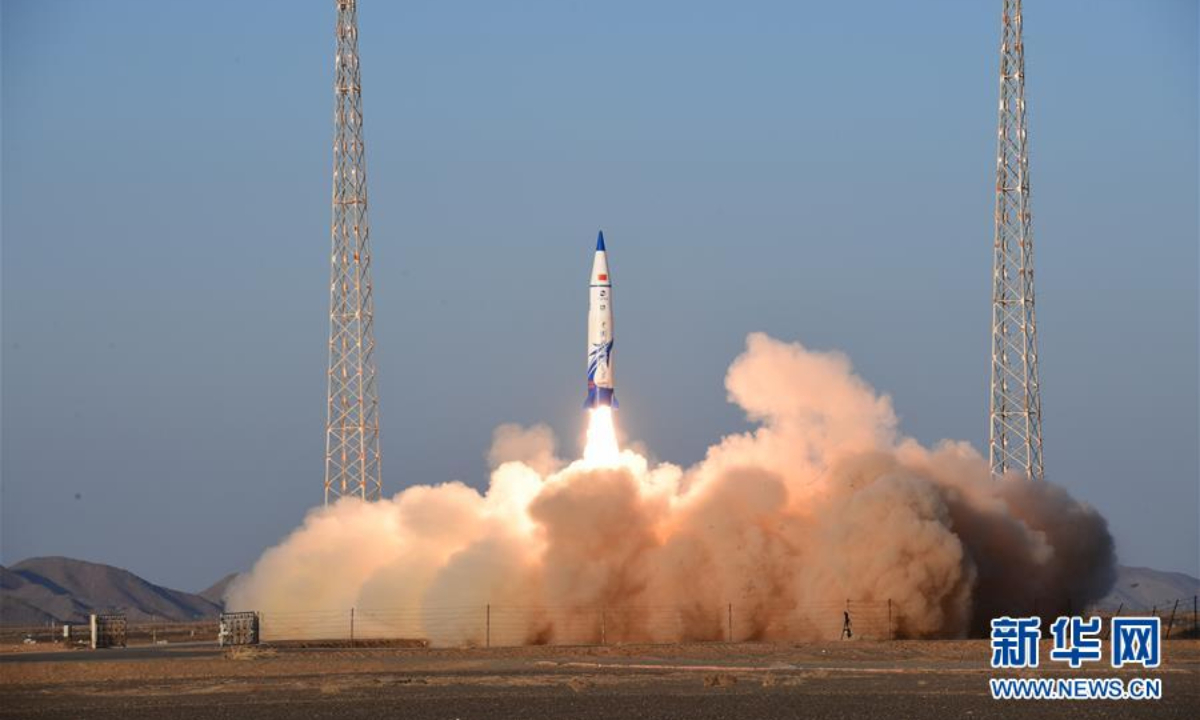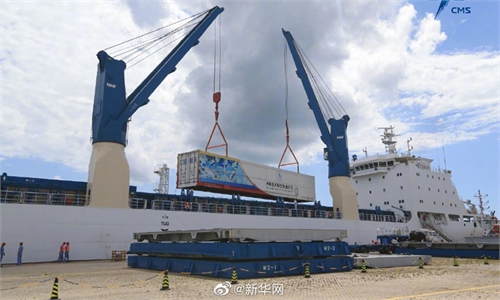China likely to start suborbital space travel in 2025, with tickets costing 2-3m yuan: rocket scientist

File photo:Xinhua
China's commercial space sector is entering its best development phase, and the country is expected to start suborbital space travel in 2025, with fares likely to fall between 2-3 million yuan ($286,400-$429,600), a senior rocket scientist said.
Previously, Virgin Galactic announced plans to open space trips priced at $450,000 per seat, media reports said.
The sector in China has entered the 2.0 era, driven by applications and market forces, from the 1.0 era that featured basic manufacturing and research and development, and it will likely catch up with the development level of the US within 10 years, Yang Yiqiang, a senior rocket scientist and founder of CAS Space, a Beijing-based rocket company, told the Global Times.
The comment came as major economies are competing fiercely in the emerging space industry, with China and the US having developed markets of a certain size in this regard.
On September 9, US Vice President Kamala Harris called on agencies to submit proposals for the authorization and supervision of "commercial space activities" over the next six months to maintain its leading position in the sector, media reports said.
Thanks to a complete series of intellectual property rights and a system to nurture talent, as well as the central government's strong support, China's commercial space industry posted an annual compound growth rate of 22.09 percent between 2015-2020, Yang said. However, he said that domestic commercial space enterprises are still at the "accumulation" stage, as their scale is comparatively small, and few companies involved in the rocket and satellite sectors make a profit.
The US started promoting the commercialization of the space sector in the 1980s, and the industry was relatively mature when SpaceX was established in 2002.
In comparison, China explicitly began encouraging private enterprises to develop commercial space industry in 2015, but the industry has taken shape after seven years of high-speed development, covering many fields such as rocket launches, satellite and ground equipment development, satellite operations and satellite applications.
According to an industry report, there are more than 370 Chinese enterprises that focus on satellite manufacturing, rocket launches and relevant downstream services.
Yang said that the domestic commercial space industry should be boosted by market demand and technological innovations. "The key for the development of China's commercial space sector is applications rather than rockets or satellites," he said, noting that "We need to ensure that common people have access to the sector."
In addition to developing reliable products and sound services, domestic private space companies need to build public experiment platforms and shoulder the responsibility of setting international standards and servicing for the Belt and Road Initiative, according to Yang.
Given the current growth rate, China's market for commercial aerospace could reach 100 billion yuan by 2030, Wang Yanan, chief editor of Beijing-based Aerospace Knowledge magazine, told the Global Times.
In terms of long-term development, it is crucial for companies to enrich their talent reserve, enhance their core technology and keep improving the capacity of their rockets, including larger loading capacity and reusability, he said.
A dozen cities across the country including Shanghai, Shenzhen and Wuhan, Central China's Hubei Province are racing to develop their own local space economies.
In March, Wuhan announced that it would support leading firms in the aerospace industry to set up R&D centers as well as manufacturing and assembly facilities in the city to accelerate the development of the national aerospace industrial base.
The city is offering companies up to 50 million yuan in incentives for each project related to the production of satellites, rockets and spacecraft, according to a government notice.
Global Times



